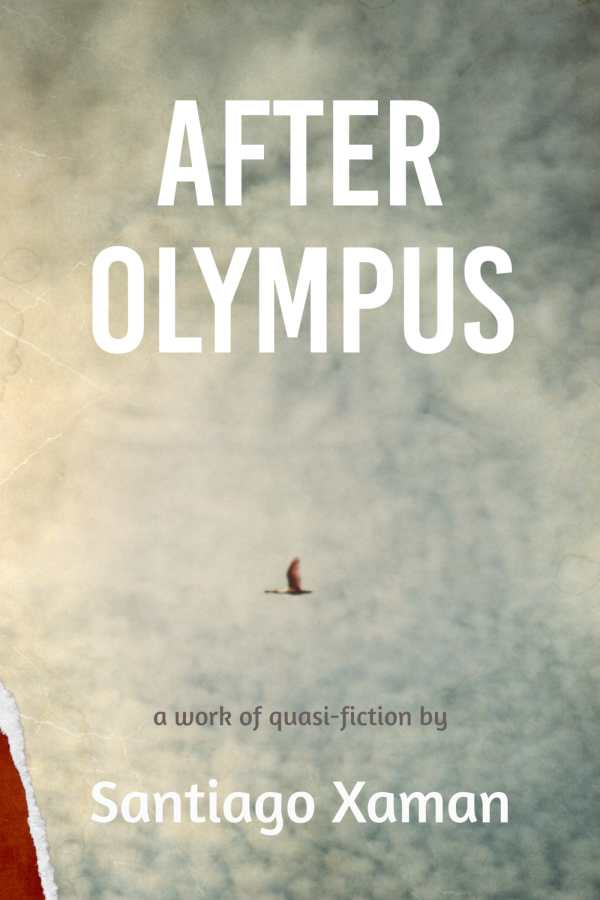After Olympus
A Work of Quasi-Fiction
After Olympus blends fact and fiction into a spellbinding novel about what’s real, what’s not, and who decides which is which.
Four men devote their lives to changing the world in Santiago Xaman’s challenging novel, After Olympus.
On a lonely night in 1978, a piece of a Soviet satellite crash-lands on Santiago Xaman’s property. The satellite and its enigmatic contents spark a debate among its discoverers: what is the biggest threat to America, and how can it be stopped? The four men devote years to researching the answers, but there are others with a stake in the outcome of the contest. While his friends try to make their theories a reality, Santiago uses a gift given to him by his namesake god to build a life and protect his friends from those who find the world useful as-is.
Spanning over eighty years, After Olympus is a thoughtful, intelligent exploration of the world’s nature and how difficult it is to effect real change in a lifetime. It tackles relevant, painful issues through the eyes of Santiago and the “magicians”—three wise men at the top of their fields who turn their significant brainpower toward revolutionizing everything.
The story switches between the men’s viewpoints, layering their perspectives to tell a story that is all about flipping accepted narratives. Its mixture of fact and fiction reinforces the assertion that truths are manufactured, not absolutes. Photographs and links to relevant articles further embellish the story, grounding it in reality even as the inclusion of gods and magic adds a novel twist.
The characters are a compelling mixture of ordinary and extraordinary. They are visionary enough to have a real chance of finding the answers they seek, but their troubles and quirks serve as reminders that they are also simply humans trying to help other humans. Exquisite details convey emotional moments far more effectively than grand monologues could.
The book contains many philosophical discussions. They can be very scientific and abstract and require careful attention to follow. Their chapters are interspersed with more conventional narrative segments containing insights into the characters’ lives. Subtle but effective pinpricks of humor balance the story’s more academic and grimmer aspects.
The final chapters jump to the near future, sharing a glimpse of the fruits of the magicians’ labor and the sacrifices they made to achieve them. The penultimate twist inspires conflicting emotions: it reflects the novel’s thesis that truth and fiction are mutable concepts, but also relies on clichés, undermining the book’s innovations.
After Olympus blends fact and fiction into a spellbinding novel about what’s real, what’s not, and who decides which is which.
Reviewed by
Eileen Gonzalez
Disclosure: This article is not an endorsement, but a review. The publisher of this book provided free copies of the book and paid a small fee to have their book reviewed by a professional reviewer. Foreword Reviews and Clarion Reviews make no guarantee that the publisher will receive a positive review. Foreword Magazine, Inc. is disclosing this in accordance with the Federal Trade Commission’s 16 CFR, Part 255.

